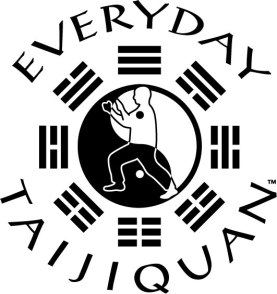![]()
Welcome to the Everyday Taijiquan (T’ai Chi Ch’uan) website. Taijiquan is the most popular exercise system in the world, with over a billion people practicing daily to enjoy the many health benefits the art has to offer, many of which are described in these testimonials. Others practice to learn functional self-defense and the formidable martial methods that provide the art with its name (Taijiquan literally means “Grand Ultimate Fist.”) The Yang family, who famously taught Taijiquan to Chinese emperors and their bodyguards for several generations, described the health and martial aspects as the Yin and Yang of the art, and held that nobody could understand Taijiquan without a careful study of both aspects. Everyday Taijiquan offers the Yang Style lineage of Huang Xingxian (Sheng-shyan) as taught by Sifu Adam Mizner.

Sifu Adam Mizner’s 2025 U.S. Seminar, Milwaukee, WI
In addition to excellent health and practical self-defense, Taijiquan can help people better understand themselves, their relations with others, and their environment. The art follows the methods of personal development found in practical Daoism and Buddhism that teach one to stabilize and refine one’s mind and awareness, and to cultivate, build, and refine one’s vital energy, or qi. Ultimately this can lead to a transformation of character, as the practitioner strives to refine the outward expression, in speech and action, of these inner qualities. The progress we make in our human character and personal growth is traditionally considered one of the most important aspects of the art.
Basic principles, followed during the Taijiquan exercise, gradually release tension from the mind and body. These principles and conditions can also be practiced during any activity, and even while resting. They include correct posture and skeletal alignment, intentional relaxation, and use of the whole mind and body to accomplish even simple movements. Long term practice of Taijiquan offers people robust health, a calm and clear mind, and surprising strength and self-confidence.
The self-defense aspects of Taijiquan teach one to harmonize with adversity. The perception and lightness fostered by regular practice allows one to sense an opponent’s slightest movement, and change to neutralize or redirect their energy or force. Taiji is sometimes called “the art of change,” and accomplished practitioners can meaningfully change position and direction several times for each change a novice makes. Regular practice also develops jin, or “internal strength,” which can be many times stronger than the binding force of muscle and bone. The name Taiji refers to the circular diagram of Yin and Yang, while the word Quan translates as “boxing.” The Taijiquan student ultimately seeks to release all internal and external conflicts, gradually arriving at a state of peace.
Taiji is an excellent system of exercise for young and old alike. It requires no special equipment, only a small space, and can be practiced by people in nearly any condition. The weak can become stronger, the strong can become more gentle, the distracted can become more present, the present can regain ease and naturalness.

For more information call (414) 217-7601 or everydaytaiji at gmail dot com.